 Romek Gelard Gello
Romek Gelard Gello Julia Alcântara
Julia Alcântara Kellen Hofer
Kellen Hofer Luci Matheus
Luci Matheus Hannnah P
Hannnah P
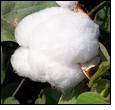 Pakistan Readymade Garments Manufacturers and Exporters Association (PRGMEA) announced that, every kilogram of domestically produced cotton must be utilised in the value-added garments.
Pakistan Readymade Garments Manufacturers and Exporters Association (PRGMEA) announced that, every kilogram of domestically produced cotton must be utilised in the value-added garments.
Moshin Ayub Mirza, Central Chairman of PRGMEA said that, in order to see RMG exports grow to $25 billion, government must put an end to the exports of cotton.
Apart from the exports of yarn, low efficiency in production and inferior quality standards are also to be blamed for adversely affecting the value-added textile sector.
The value-added textile sector has also suffered owing to yarn, electricity, gas shortage, law and order situation, harassment by government bodies and misuse of political influence, informed Mirza.
Owing to all this, Mirza averred that, the value-added sector was unable to perform its best. He further added that, the government should only permit 40,000 ton of yarn to be exported per month. In addition, the 15 percent regulatory duty, imposed exports of yarn has also aided in a 10 percent cut in price.
Members of PRGMEA, accompanied by Mirza have also urged the government to form a task force to review each textile sector on a monthly basis.
Models display creations for Agnès B. during the Men's 2011 Spring-Summer ready-to-wear collection show in Paris, June 27, 2010.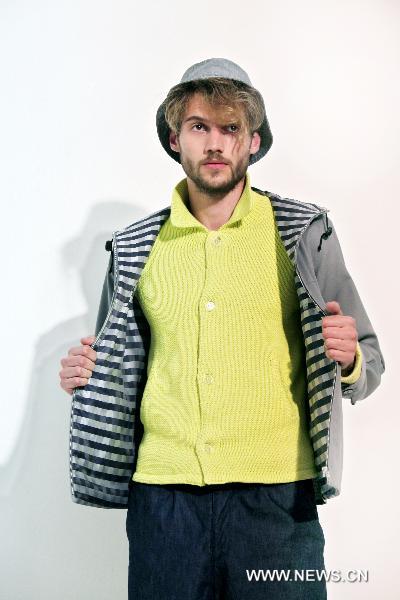
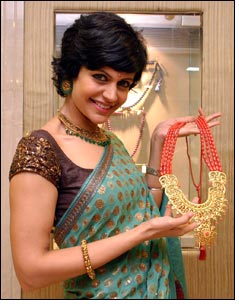 Shree Ganesh Jewelley House Ltd, the largest manufacturers and exporters of handcrafted gold jewellery in India has launched their exclusive store – Gaja Heritage in Kolkata located at 227 A.J.C Bose Road. Inaugurated by Ms Mandira Bedi, the store flaunts its rich collection of handcrafted heritage jewellery.
Shree Ganesh Jewelley House Ltd, the largest manufacturers and exporters of handcrafted gold jewellery in India has launched their exclusive store – Gaja Heritage in Kolkata located at 227 A.J.C Bose Road. Inaugurated by Ms Mandira Bedi, the store flaunts its rich collection of handcrafted heritage jewellery.
Gaja Heritage, the shopping destination of authentic gold jewellery in the city is the third store by Shree Ganesh Jeweller House Ltd. .Located in the heart of the city. Affordable and best suited for the working women of today, Gaja Heritage is truly charismatic in design and quality.
Speaking at the launch Mr. Sharad Mohata, Director, said “We are very happy and proud to bring to our customers the world class experience of shopping heritage jewellery from our rich & exclusive collection. We specialize in filigree and polki work and wish to establish ourselves in this high end market. This is our first store for classic heritage jewellery in Kolkata being one of its kind under an organized brand. We want to attract customers by being their wedding/ major event jewellery consultant by providing best of services, designs and product collection at affordable prices.
Raj Bari: Typically, Bengali jewellery pieces which rolls back to the Zamindari days. Its ben conceptualized from the forts and palaces of Bengal. The staple chile – kantha work dates back to the birth of Bengali jewellery
Moon Dance:It has been conceptualized from the times when human beings started adorning themselves in jewelery pieces crafted in brass. To keep the old flavor alive, uncut diamonds (Polki) have been ushered in to enhance the crescent. It is a view that might have been apparent from even the terraces of old civilizations such as Indus valley and Harappa – Hence its bold ethnic look.
Full Circle: From the old to the new makes it a golden circle. Variety of designs, stones and colours have been used to break and unwind the traditions and give it a new flavor. Indeed we believe that a pair of ER makes more of a statement than anything else. Full circle also implies the complete circle of life that is represented in the shape and content of each pair of ‘Kaan – poshas’
String fling: Simple strings yet eye catching. Be it corals, rubies or sapphires. The lodhi style comes from yonder years, Moghals, Rajputs, Maharajas and Maharanis. They may even come from the streets of New York or a Boulevard of Milan. We want women to see these necklaces as single item buys to be worn with to be worn with sarees or jeans and a reason to have fun with life.
Avante Gaude:These jewellery pieces have been transformed and reworked from older ideas. They are contemporary as well as ahead of its time. They are quirky pieces that appeal to something inside you and define you no matter where you are and what you may happen to be doing.
Sparkle:They are a collection of exclusively handcrafted diamond jewellery. Every piece reminds of the fact that Diamonds are girls’ best friend and a single piece adds a special something to your look at any point of time.
Shree Ganesh Jewellery House Ltd is a 3000 crores ( US $ 638 million) 4 star export house Govt of India recognized company and is the largest manufacturer and exporter of hallmarked and handcrafted jewellery from India. Promoted and headed by Mr. Nilesh Parekh and Mr. Umesh Parekh, the group is headquartered out of Kolkata and are also present in Mumbai, Hyderabad, Delhi, Bangalore, Chennai and Ahmedabad. The Company plans to open more than 40 stores in various formats all across India in the next 2-3 years to establish its presences as one of the biggest players in the organized retail jewellery market.
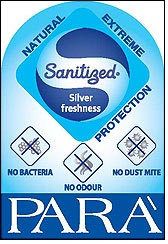 At Pará, a SANITIZED customer, guaranteeing the best possible quality means controlling the entire production process. The Italian manufacturer of high-end and technically as well as esthetically ambitious materials therefore has every step of the production chain under its control. This includes spinning, weaving, printing and finishing – with everything Made in Italy. Every day, 15,000 kilograms of yarn is produced which equals 18 million square meters of woven fabric per year.
At Pará, a SANITIZED customer, guaranteeing the best possible quality means controlling the entire production process. The Italian manufacturer of high-end and technically as well as esthetically ambitious materials therefore has every step of the production chain under its control. This includes spinning, weaving, printing and finishing – with everything Made in Italy. Every day, 15,000 kilograms of yarn is produced which equals 18 million square meters of woven fabric per year.
One of the Pará Group brands, Tempotest, stands for high-quality textiles for outdoor, marine, awnings and sun shade applications. Another characteristic of Pará is the typical Italian style, which is expressed in the colors and patterns. There are currently thousands of different patterns offered – in the company’s own collection or in collections made for customers. It therefore does not come as a surprise that Pará has become one of the largest providers of awning fabrics in Europe and is a world leader in the interior sector.
For almost three years, Tempotest awnings have had a supplementary upgrade: they are finished with a Sanitized treatment proven to be effective against fungi and mildew. This extremely positive experience has motivated Pará’s R&D department to make the textiles for interior design resistant to bacteria, odor development, and dust mites with Sanitized T 27-22 Silver. Users are made aware of the added benefits of the textiles through the “Sanitized Silver freshness” label.
"The intensive collaboration with SANITIZED has resulted in a wide variety of extremely useful and purposeful synergies,” explained Pará marketing manager Paolo Patruno. The new interior design textiles finished with Sanitized Silver were first introduced at the recently Proposte Trade Fair in Como, Italy. “The market shows a very active interest in interior textiles with antimicrobial silver finishing,” summarized Paolo Patruno.
Customers outside Europe have learned the value of the special characteristics of Pará fabrics. A current, recently added customer reference is the Obama Family, resident in the White House in Washington DC, whom has chosen Pará fabrics for the interior decoration of their home.
Ronke Ladipo’s Rouch will showcase Thursday, July 14th at Africa Fashion Week New York produced by Adirée. AFWNY will take place July 14th, 15th, and 16th at the Broad Street Ballroom in New York’s Financial District.
Rouch is a line merging ankara and lace materials. Ladipo uses many colors and textures throughout the collection, influeneced by Ladipo’s Nigerian heritage, backed by her experience in fashion and media.
"I was inspired by my grandfather who used the remaining of his ankara fabric to make me a lot of beautiful dresses when I was a little child." Ronke Ladipo, designer
AFWNY includes runway shows hosting 21+ designers from various countries in Africa and those of the African Diaspora, exhibitions, and industry networking events. Opening designer Korto Momolu and designers like Washington Roberts, Saint Wobil, AAMAA Couture, Bill Witherspoon and others will showcase.
Ronke Ladipo is based in Lagos, Nigeria. She is an experienced model, television and radio personality. In additionm Ladipo was an image consultant and a fashion editor for Trends, a fashion supplement magazine for the National Daily a daily newspaper in Nigeria.
 Garment manufacturers in Nepal have asked the Government to do away with the extra fine that it levies on the advance payment for raw material imports, so as to revitalize the export sector.
Garment manufacturers in Nepal have asked the Government to do away with the extra fine that it levies on the advance payment for raw material imports, so as to revitalize the export sector.
The Government has been levying extra fine on the bank guarantee that the garment entrepreneurs obtain to offset the losses incurred, if any, in respect of inward shipments.
Uday Raj Pandey, President, Garment Association – Nepal (GAN) said that the extra fine paid for bank guarantee raises their production cost by almost 50 percent, and hence demanded removal of the same.
He elucidated that though the amount paid by way of such extra fine is refundable, it adds to the initial production cost and as a result the Nepali garment industry is losing its competitiveness.
GAN has forwarded its recommendations in this regard to the Ministry of Finance. The garment industry is optimistic that the Government would incorporate its suggestions in the forthcoming budget to revitalize the sector.
In the context of Government’s apathy to implement investment-friendly strategies and programmes, GAN Chief said that they wish that their suggestions are seriously considered and implemented in totality.
He said that the proposal for developing an Export Processing Zone (EPZ) for Readymade Garments of Nepal is also awaiting execution. Meanwhile, the garment businesses, he said, have also urged the Government to aid revival of the ailing units.
The Government in its last budget gave an assurance that it will constitute a Sick Industry Fund, but that promise is still unfulfilled.
In addition, the ongoing workers’ strife in the industry has pushed several large scale industries on the brink of closure. Presently, only a few large scale garment industries are functional. Momento, Sherpa Outwear, Surya Nepal and Amy Apparels are some of the surviving industries.
GAN has also urged the Government to make soft loans available to the garment industry at four percent interest rate.
The GAN Chief said that the garment export figures are not much impressive this year, as during the initial 10 months of the current fiscal readymade garments worth only NPR 3.26 billion have been exported, which is 6.26 percent of the country’s overall exports.
However, this year too, the garment industry aims to achieve the last year’s figure of NPR 4.35 billion.
During the initial 10 months of current financial year, Nepali garment industries imported NPR 2.25 billion and NPR 500 million worth of raw materials from India and China, respectively.
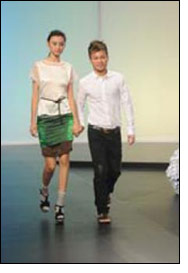 More than 1,700 exhibitors are taking part in the HKTDC Hong Kong Fashion Week for Spring/Summer and the concurrent HKTDC Summer Sourcing Show for Gifts, Houseware & Toys, which opened July 4 and continue until July 7 at the Hong Kong Convention and Exhibition Centre (HKCEC).
More than 1,700 exhibitors are taking part in the HKTDC Hong Kong Fashion Week for Spring/Summer and the concurrent HKTDC Summer Sourcing Show for Gifts, Houseware & Toys, which opened July 4 and continue until July 7 at the Hong Kong Convention and Exhibition Centre (HKCEC).
The two fairs, organised by the Hong Kong Trade Development Council (HKTDC), feature new product zones to attract buyers, including 146 buying missions representing thousands of companies from around the world.
Fashion Trends
Hong Kong Fashion Week is playing host to over 1,300 exhibitors from 24 countries and regions, including seven group pavilions representing the Chinese mainland, India, Indonesia, Japan, Macau, South Korea and Taiwan. The United Arab Emirates is taking part for the first time. New product zones Denim Arcade and Handbags Select join the fair’s popular Brand Name Gallery.
"Hong Kong’s garment and textile industry attracts buyers from around the world because of its high manufacturing standards and flexible trade and sales services," said Benjamin Chau, Deputy Executive Director of the HKTDC. "Hong Kong fashion designers are trendsetters who understand the market, making Hong Kong Fashion Week an ideal platform for international business."
Catwalk Talent
Fashion Week special events include "Hong Kong New Design Force" which takes place this afternoon (room N101). Under the theme "Into the Light" the show features 12 fashion collections by designers who have been winners or finalists in the Hong Kong Young Fashion Designers’ Contest over the past two years. As a show backdrop, local product designers will use recycled advertising banners to create unique lighting displays.
Throughout the fair, the Designers Love Fur Collection 2011 display, organised by the Hong Kong Fur Federation, takes place in the Hall 1C concourse. A series of fashion parades are also being staged by exhibitors from the mainland, Hong Kong, India, Indonesia and Taiwan at the Hall 1D Concourse.
Fashion Insight
Highlights also include seminars led by internationally known trend forecasters, including Fashion Snoops, Peclers Paris and WGSN. The first stop in trend-forecasting agency Stylesight’s LIVE Global Trend Tour takes place, 6 July, with speakers from London and New York.
The Hong Kong Polytechnic University’s Institute of Textiles & Clothing presents its MA Graduation Fashion Show 2011 this evening. Tomorrow, the fair hosts a Brand Collections’ show featuring Singapore’s Alleria, Indonesia’s Firmato-Espen Salberg and Macau’s MaConsef. The Chinese University of Hong Kong’s School of Continuing of Professional Studies is putting together a student fashion show tomorrow.
Summer Sourcing Show
Design is also central to the Summer Sourcing Show for Gifts, Houseware & Toys. The fair features group pavilions from the mainland, Korea, Taiwan and the Hong Kong Exporters’ Association. Nepal joins the fair for the first time.
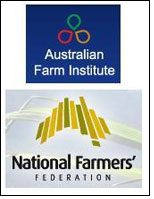 Australian cotton farming families will still face a 5.5 percent cut to their farm net income following the imposition of a carbon tax, despite the Government’s claim that agriculture will be excluded.
Australian cotton farming families will still face a 5.5 percent cut to their farm net income following the imposition of a carbon tax, despite the Government’s claim that agriculture will be excluded.
Independent research produced by the Australian Farm Institute for Cotton Australia and the National Farmers’ Federation (NFF), modelled the impact of an economy-wide carbon price tax commencing at $20 per tonne on a typical irrigated cotton farm of 400 hectares.
Modelling under this scenario shows that five years after the introduction of a carbon tax, this farm business would incur total annual cost increases of 2.1 percent, producing a reduction in farm net income of 5.5 percent at year five.
Costs arise from an increase in the price of energy, which would increase the cost of energy-reliant farm inputs, such as electricity, fuel and fertiliser.
NFF President Jock Laurie says this research clearly shows that Aussie farming families will be left well behind in an increasingly competitive global cotton market.
"Quality Australian cotton has always been in high demand around the world, but whacking a carbon tax on top of existing production costs will wipe out our price competitiveness, placing our traditional markets at risk" Mr Laurie said.
"We’ll continue to do the modelling work that the Government should be doing to expose the folly of rushing into a carbon tax, when none of our international competitors have to carry that same burden."
Cotton Australia CEO Adam Kay says the Australian cotton industry currently has a tiny carbon footprint, producing less than a third of one percent of the nation’s Green House Gas emissions (GHG).
"Australian Cotton farmers have already put in the hard yards to reduce GHG emissions, adopting our specific Best Management Practices modules, designed to ensure growers use the right emission reducing technology and operational procedures" Mr Kay said.
"We don’t produce much GHG now, so we don’t have that far to go towards reaching our cotton industry goal of becoming carbon neutral. It’s about time the Government recognised and rewarded our efforts, rather than compromising our international competitiveness with another tax" Mr Kay said.
The research paper 'The impact of a carbon price on Australian Cotton Businesses' is the third in a series of papers being developed by the Australian Farm Institute, and is available below.
 American Apparel Inc, a vertically integrated manufacturer, distributor, and retailer of branded fashion basic apparel, announced that its Board of Directors has elected David Danziger and Marvin Igelman to the Board. Marvin Igelman's appointment will become effective upon a future Board vacancy.
American Apparel Inc, a vertically integrated manufacturer, distributor, and retailer of branded fashion basic apparel, announced that its Board of Directors has elected David Danziger and Marvin Igelman to the Board. Marvin Igelman's appointment will become effective upon a future Board vacancy.
"At this pivotal and exciting time for our Company, we are fortunate to have the substantial business acumen of Messrs. Danziger and Igelman," said Dov Charney, Chairman and CEO of the Company.
David Danziger
"David Danziger has a wealth of experience in the field of accounting and finance and has over twenty-five years of experience serving both public and private companies in numerous industries, including manufacturing and retail," said Charney. "David brings a level of accounting and financial expertise that will be a welcome addition to our Board."
In addition to his selection as a Director, Mr. Danziger will serve on the Company's Audit and Enterprise Risk Management Committees. Danziger is a Chartered Accountant and is a partner with MSCM LLP, Chartered Accountants, a full service audit and accounting firm registered to audit public companies both in Canada and the United States. He currently serves as a member of the Board of Directors of Cadillac Ventures (TSXV:CDC.V), Carpathian Gold (TSX:CPN), Eurotin Inc. (TSXV:TIN.V) and Renforth Resources (CNSX:RFR).
"I am delighted to join the Board of Directors of American Apparel," said Mr. Danziger. "This is a strong brand with world-wide recognition and respect. We have an exciting future and I am looking forward to a long and prosperous professional relationship with the Company."
Marvin Igelman
According to Charney: "Marv Igelman is an innovator in the social, mobile, media and search technology areas. Marvin's insights will be a valuable asset to us in these and other technology related areas of our business."
Igelman was the founder and CEO of Unomobi Inc., a mobile advertising and messaging platform that was acquired in February 2010 by Poynt Corporation (TSXV:PYN), a provider of mobile local search. Igelman served until June, 2011 as Poynt Corporation's Chief Strategy Officer and Board member following Poynt's 2010 acquisition.
"I am excited about the growth prospects at American Apparel," said Mr. Igelman. "The Company is moving forward with appropriate speed to capitalize on the brand and grow its distribution channels through organic measures and exploitation of its newer channels. I am happy to add my expertise and support in these efforts."
American Apparel is a vertically integrated manufacturer, distributor, and retailer of branded fashion basic apparel based in downtown Los Angeles, California. As of May 31, 2011, American Apparel had approximately 10,000 employees and operated 254 retail stores in 20 countries, including the United States, Canada, Mexico, Brazil, the United Kingdom, Ireland, Austria, Belgium, France, Germany, Italy, the Netherlands, Spain, Sweden, Switzerland, Israel, Australia, Japan, South Korea, and China.
Bosideng International Holdings Limited, the largest down apparel company in the PRC, announces its final results for the year ended March 31, 2011.
For the year ended March 31, 2011, the Group recorded revenue of approximately RMB7,037.8 million (2010: approximately RMB5,738.1 million), representing an increase of 22.7% as compared with the corresponding period last year. The increase was mainly driven by the flexible pricing strategy of down apparel business to suit market needs and the continued expansion of non-down apparel business.
Gross profit increased by 14.3% to RMB 3,299.4 million (2010: RMB2,886.6 million). Profit attributable to equity holders of the Company increased by 18.3% to RMB1,276.4 million. The Board has recommended the payment of a final dividend of RMB6.8 cents and a special dividend of RMB6.0 cents (totalling RMB12.8 cents) per ordinary share for the year ended March 31, 2011.
Mr. Gao Dekang, Chairman and CEO of Bosideng, said, “During this financial year, the apparel industry was under the pressure of raw material and labor costs while sales and margins also declined. In response to the challenging market conditions, we changed our marketing strategy to promote our strong brand name and to introduce innovative products.
"We adopted a dynamic approach in the management of our supply chain to meet the changing market demands. In particular, the Group was able to meet the increased demand when winter weather came in October 2010. We promptly replenished the stock of popular items during the extended peak season from December 2010 onwards. As a result, the Group has achieved satisfactory results."
The Group continues to enhance the diversity of its apparel products and proactively implemented a strategy to develop non-seasonal apparel products to expand its brand and product portfolio. Apart from the rapidly growing "Bosideng MAN", we launched the luxurious business menswear brand "VETALLO" and acquired the casual wear brand "Mogao" and the kids wear brands during the reporting period, to fuel the growth of our non-down apparel business" Mr. Gao continued.
During the year under review, branded down apparel business remained the largest revenue contributor, accounting for 80.7% of the Group?s total revenue. “Bosideng” branded apparel remained the highest contributor and contributed 62.6% or approximately RMB 3,554.2 million of the total branded down apparel sales.
"Snow Flying” branded apparel contributed 20.2% or approximately RMB1,146.2 million of the total branded down apparel sales. "Kangbo" and “Bengen” (previously known as "Bingjie") recorded revenues of RMB572.5 million and RMB410.9 million, which represented 10.1% and 7.2% of the total branded down apparel sales respectively. In an effort to strengthen differentiation amongst various brands, the Group adjusted its product offerings under its portfolio of brands.
Going forward, Mr. Gao said: “The Group holds a cautiously positive outlook. The local consumption pattern and spending power will keep improving in the next one or two decades, and the development of apparel industry of the PRC is stepping towards a new era with a new focus on brand development and upgrading after the expansion of market scale. In the next three to five years, the Group will continue to increase the proportion of the non-down apparel business to overall sales and further expand international distribution channels and optimize the international sales network, so as to transform Bosideng into an international well-known integrated apparel brand operator.”
He continued: “The sales by new order system of down apparel products is expected to increase from 12% in this year to approximately 25% in 2011/2012, and remove the original product return system within 3 years so as to increase the sales of down apparel products and lower the inventory risks. For non-down apparel products, the Group will focus on market expansion. Among which, the number of retail outlets of “Bosideng MAN” is expected to grow in a rapid pace and increase to approximately 1,100 in mid 2012, and the proportion of self-operating stores and franchised stores will also increase.
"For "ROCAWEAR" brand business, it is planned to open more than 300 "ROCAWEAR" freestanding stores or shop-in-shop in the Greater China Region by 2013 with a target to develop into a fashion leading brand within 3 to 5 years. For "Mogao" brand and the brand of kids wear under Lanboxing is expected to open 150 to 200 stores every year, and the number of outlets in 2015 is expected to be approximately 1,300 and 2,000 respectively. "BOSIDENG RICCI" plans to focus on establishing sales networks in Eastern China and expects to set up approximately 100 stores within 3 years.
The Group further enhanced the no-return order system for its down apparel business in order to minimise inventory risk and optimize operational efficiency. By the end of the year, approximately 12% of the sales of down apparels were conducted under the order system. The Group believes the introduction and implementation of the order system will effectively boost the sales of down apparels, improve the flexibility of inventory management and enhance the operating efficiency of the Group.